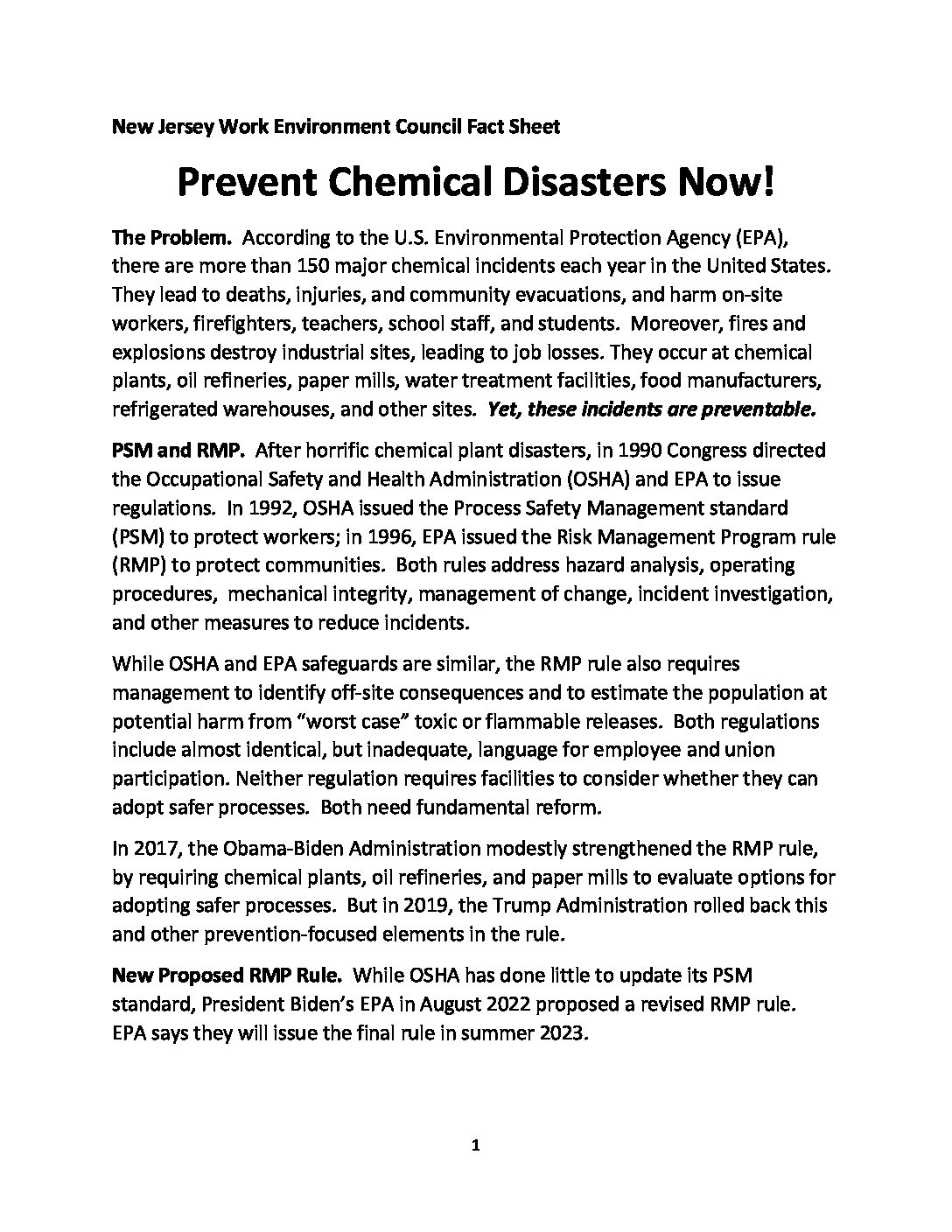- Toxic Release Inventory
TRI is one of a number of federal and state laws that workers and community members can use to help reduce toxic exposure.
Chemical Facilities Must Hold Public Meeting After an Incident with Off-Site Consequences
By law, effective March 15, 2021, 78 facilities in NJ that use extremely hazardous substances are required to hold a public meeting within 90 days of any incident that results in offsite deaths, injuries, evacuations, sheltering in place, property damage, or environmental damage. - Protecting Firefighters, Police, and Other Emergency Response Workers From Hazardous Materials
- You Have the Right to Disclose Unlawful Activity and to Not Participate In Such Activity Without Employer Retaliation
- Summary of NJ Hazardous Substance Fact Sheet: Vinyl Chloride
This is a summary of the NJ Hazardous Substance Fact Sheet on vinyl chloride and on your righ to know about hazardous chemicals in your community. - Hurricane Recovery: Resources for Protecting Workers & Residents
A list of resources for workers and residents. This factsheet was revised July 2013. - Finding Chemical Exposures and Negotiating Fixes
A checklist to help you and your union to push management to reduce workers’ exposure to hazardous chemicals. - Make Sure Public Employers Submit Accurate Chemical Right to Know Surveys
Public employee unions should ensure that public employers do a thorough job completing the 2008Â Right to Know Survey. - Worker and Union Rights to Participate in Inspections to Prevent Catastrophic Toxic Releases
Workers and union representatives now have important rights to protect the safety and security of workers and communities. - Stop Chemical Disasters
- Open Public Records Act (OPRA)
Learn what OPRA is and how you can use it. This fact sheet was revised April 2013.
Weather the Storm – Save Your Business Factsheets and Training Curriculum
It’s critical to develop a flood plan to minimize releases of these materials that can lead to both property loss and chemical exposures for humans and the environment. Determine the flood risk of your building and develop a flood management plan. Link to WEC pollution prevention resource page.
- Flood-Proof Your Business: Prevent Chemical Releases During Floods and Storm Surges
- Dry Cleaning Businesses: Prevent Chemical Releases During Floods and Storm Surges
- Auto Repair Shops: Prevent Chemical Releases During Floods and Storm Surges
- Scrap Metal Businesses: Prevent Chemical Releases During Floods and Storm Surges
- Training Guide for Local Officials, Staff and Employees Version 1: Implementing Community-Led Outreach to Achieve Pollution Prevention in Flood Risk Areas
